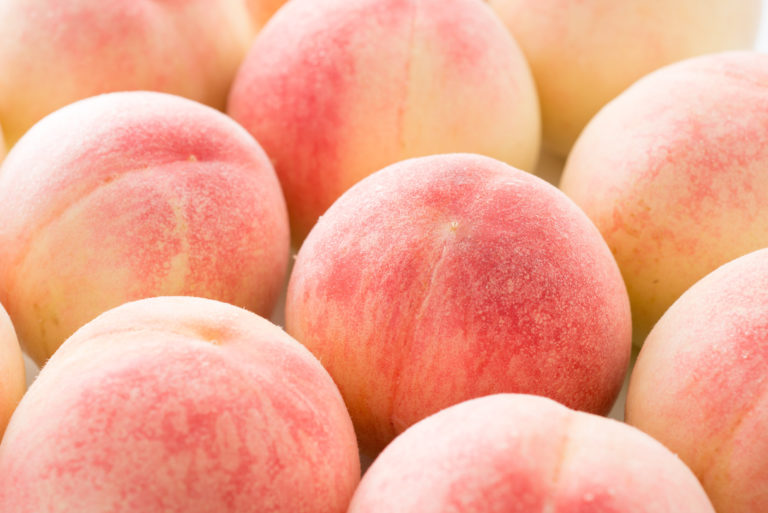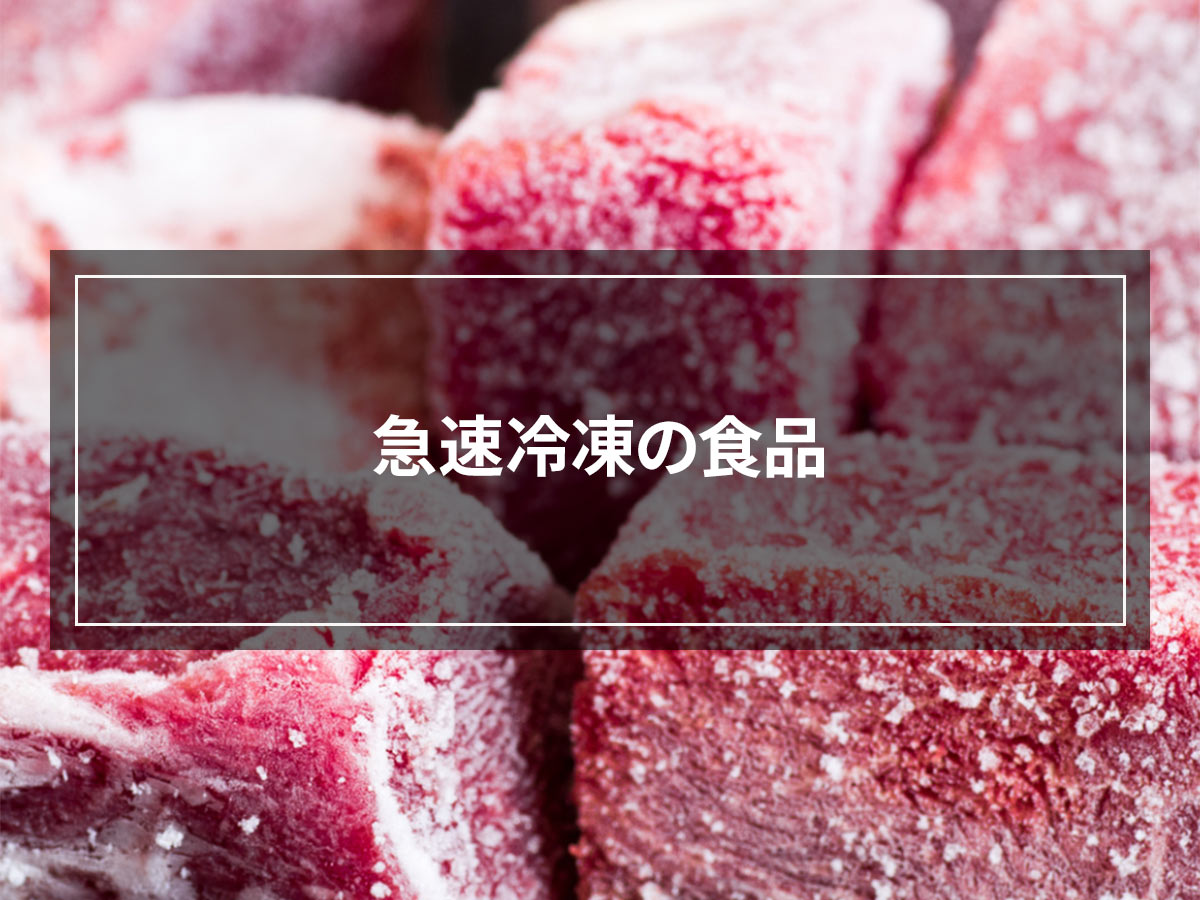rapid freezing vegetables and make effective use of them! Income increase techniques recommended to farmers
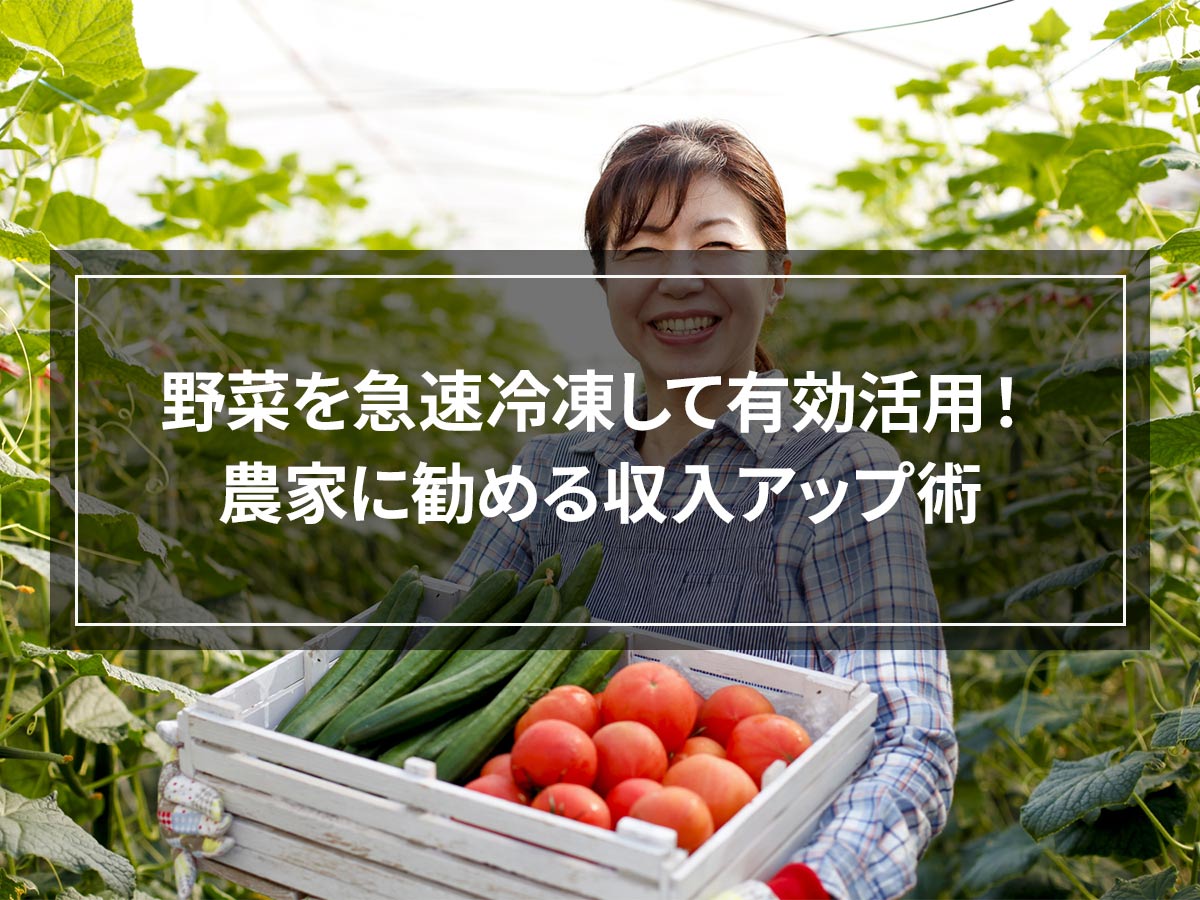
In agriculture, the harvest season is limited and the yield is easily affected by weather and other factors, making it difficult to maintain a stable supply. Additionally, if the product does not meet the specifications, it cannot be shipped, resulting in a large amount of waste loss.
Because the industry deals with nature, it is difficult to stabilize or increase income.
Did you know that one example of a solution to such problems is rapid freezerthe introduction of ?
By freezing and processing, you can sell frozen vegetables and manufacture processed products using vegetables as raw materials.
Frozen vegetables can be stored for a long time, so they can be supplied throughout the year. Because they are pre-processed, they are easy to use, maintain their freshness and nutritional value, and add value as safe and secure vegetables.
In addition, by utilizing vegetables that could not be shipped due to standard issues or specialty vegetables, it is possible to develop new products and expand sales channels.
We will introduce how to make effective use of vegetables through rapid freezing, and examples of successful efforts to revitalize agriculture.
目次
Problems faced by farmers
Stable supply is difficult
Vegetables have a limited harvest season, so it is difficult to supply them all year round. It is also susceptible to damage from weather and natural disasters, making it difficult to produce with consistent quality.
There are years when the yield is high and there are years when it is low, making it difficult to maintain a stable supply.
Even if we are to develop sales channels, we need a stable supply in order to do business with retailers such as supermarkets and restaurants. Since the yield of vegetables is not stable, it is difficult to contract individually.
There is a lot of waste loss
Vegetables shipped to agricultural cooperatives and markets are subject to strict standards, and vegetables with non-standard sizes and shapes cannot be shipped. Vegetables that cannot be shipped are often discarded, resulting in a large amount of waste.
In addition, when there is a large harvest due to a bumper crop, the vegetables may not be able to be shipped due to oversupply, which causes the price of vegetables to fall.
Stable income is difficult and there is a lack of people to support
Many people are leaving farming because it is difficult to secure a stable income, and the population is aging. There are few people to take on the responsibility of farming, and young people in particular are turning away from farming, which is a problem.
There are few people who take the initiative to start something new, such as making capital investment or expanding sales channels, making it difficult to revitalize the industry.
Solved by introducing rapid freezer
rapid freezing allows food to be stored for a long time without losing its freshness, taste, or nutritional value.
I would like to see what kind of problems can be solved by introducing rapid freezer.
Year-round supply
rapid freezing allows for year-round supply while maintaining freshly harvested quality.
Vegetables are not suitable for freezing due to their high water content, but they can be frozen by bracing or cutting them.
A variety of frozen vegetables are produced, including frozen corn, frozen green beans, and frozen spinach.
In addition, we can produce a variety of products such as cut potatoes, mashed potatoes, baked potatoes, and french fries.
Furthermore, by manufacturing products made from vegetables, such as processing sweet potatoes into sweet potatoes and processing carrots into carrot juice, production lines can be operated year-round.
Effective use of local specialty vegetables and non-standard vegetables
You can develop products by using vegetables that are commonly harvested in the region or vegetables that could not be shipped because they did not meet the standards. By partnering with farmers and manufacturers, locally grown ingredients can be branded and sold nationwide.
For example, in Kanazawa City, Ishikawa Prefecture, sweet potatoes and pudding are commercialized and sold using locally abundant Gorojima sweet potatoes.
Contracted farmers, processing companies, pastry chefs, and convenience stores collaborate to develop products using local vegetables and expand consumption through in-store and online sales.
Improving added value
rapid freezing allows for a stable supply of safe, secure, and high-quality vegetables without sanitary concerns. Since freshness and quality can be maintained, it is possible to maintain the same taste and nutritional value as when harvested without using coloring agents or preservatives.
In addition, because they are pre-processed, they are easy to use, convenient, fresh, and nutritious vegetables, increasing their added value.
Expansion of sales channels
You can expand your sales channels for frozen vegetables through wholesalers. We can sell our products not only to local co-ops and direct sales stores, but also to school lunches and major food chains across the country.
Since we can provide a stable supply, it will be easier to conclude contracts with customers, and we will be able to earn stable income.
Agricultural revitalization efforts and results
It is quite difficult for an individual to install rapid freezer and develop a product, but doing it as a group can help secure more capital investment and labor. One example is the agricultural cooperatives that have been successful in their efforts to stabilize the incomes of farmers.
In addition, efforts to develop the sixth industry are expanding in an effort to revitalize agriculture in the region. We would like to introduce you to a town that is promoting the sixth industrialization by making use of locally produced ingredients.
Efforts towards sixth industrialization
Efforts toward the sixth industry, which processes and sells harvested agricultural products, are expanding.
Sixth industrialization is an effort to revitalize industries in areas where primary industries such as agriculture and fishing are thriving by making use of locally available ingredients. We are diversifying our business by partnering with the primary industry of agriculture, forestry and fisheries, the secondary industry of processing, and the tertiary industry of sales, distribution, and services.
The aim is to increase the income of primary industry workers and revitalize the region. Once your business is certified, you can receive support from local governments, such as financing for equipment investment and advertising costs, as well as consultation on sales methods and management.
Initiatives in Fukaura Town, Aomori Prefecture
In Fukaura Town, Aomori Prefecture, where the population is aging, the town is promoting the transition to the sixth industry.
In 2012, the third sector of the town established the Fukaura Town Agricultural and Fishery Products Processing Plant. We have invested in equipment such as rapid freezer and flour mills, and in addition to selling fresh products, we process tomatoes and carrots into juices, potages, dressings, and other products.
Sales in 2013 were 18 million yen. As the area also has a thriving seafood industry, we are developing products such as ``Snow Carrot and Scallop Pasta Sauce'' that make effective use of vegetables and marine products.
The aim is to expand sales channels and help farmers become financially stable, thereby securing workers to support them. In particular, we are trying to revitalize the region by increasing the number of young people who want to become farmers.
Achievements in Hokkaido/JA Nakasatsunai Village
JA Nakasatsunai Village in Hokkaido started a frozen edamame business in 1992 to stabilize the income of farmers and cooperative members. The edamame beans are harvested between August and September, and are heat-treated within 3 hours of harvest and then rapid freezing.
Producers ship edamame to JA, and JA processes and sells it, expanding the sales channel for frozen edamame. We have signed contracts with 180 companies, including consumer cooperatives and major izakaya restaurants, and are distributing our products nationwide.
In 2005, we expanded our factory and refrigeration facility, increasing local employment. In 2009, there were 104 edamame farmers, with a production volume of 2,492 tons and a production value of 470 million yen.
Additionally, in 2005, we began manufacturing processed products using non-standard edamame and other ingredients, making effective use of edamame without wasting it. Products such as ``Edamame Yokan'', ``Edamame Ice Cream'', ``Edamame Soba'', and ``Edamame Curry'' have been commercialized.
We have also started exporting overseas. Export to sushi restaurants in the United States began in 2007, and sales channels have expanded to Singapore, Russia, the United Arab Emirates, and other countries.
Due to the Japanese food boom, demand is increasing at Japanese restaurants and supermarkets that carry Japanese ingredients.
Conclusion
Many farmers are faced with the problem of not being able to make a profit commensurate with their labor because it is difficult to have a stable supply of vegetables and there is a lot of loss.
However, by rapid freezing, it can be preserved for a long time while maintaining its freshness, nutritional value, and taste.
It will be possible to stably supply high-quality vegetables, and it will be possible to make and sell products by making effective use of vegetables that were previously wasted.
As efforts to revitalize communities through agriculture are expanding, we encourage you to take the opportunity to rethink how you can use vegetables.




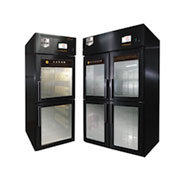

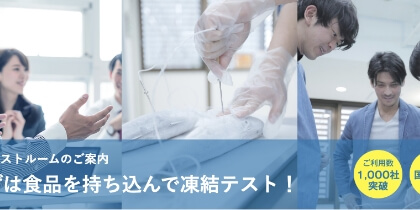
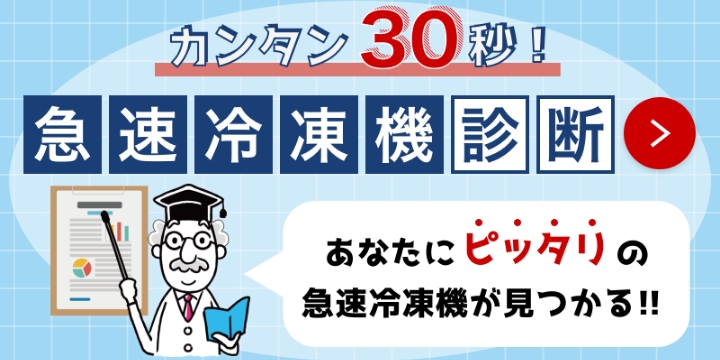
![[Storage period increased by 30 times! ] Achieving a stable supply of raw whitebait!](https://shunkashutou.com/wp-content/uploads/2016/11/579c55e6d32e1385c250e8e7c3ed59a71.jpg)
![[Sales increased 100 times! ] rapid freezing the signature menu “Ni-katsu sandwich”!](https://shunkashutou.com/wp-content/uploads/2016/11/IMG_02391.jpg)
![[Horse sashimi] We have significantly reduced waste loss with rapid freezer!](https://shunkashutou.com/wp-content/uploads/2016/11/5fda59d0cbcdabde18e58c3c58c09ed0.jpg)
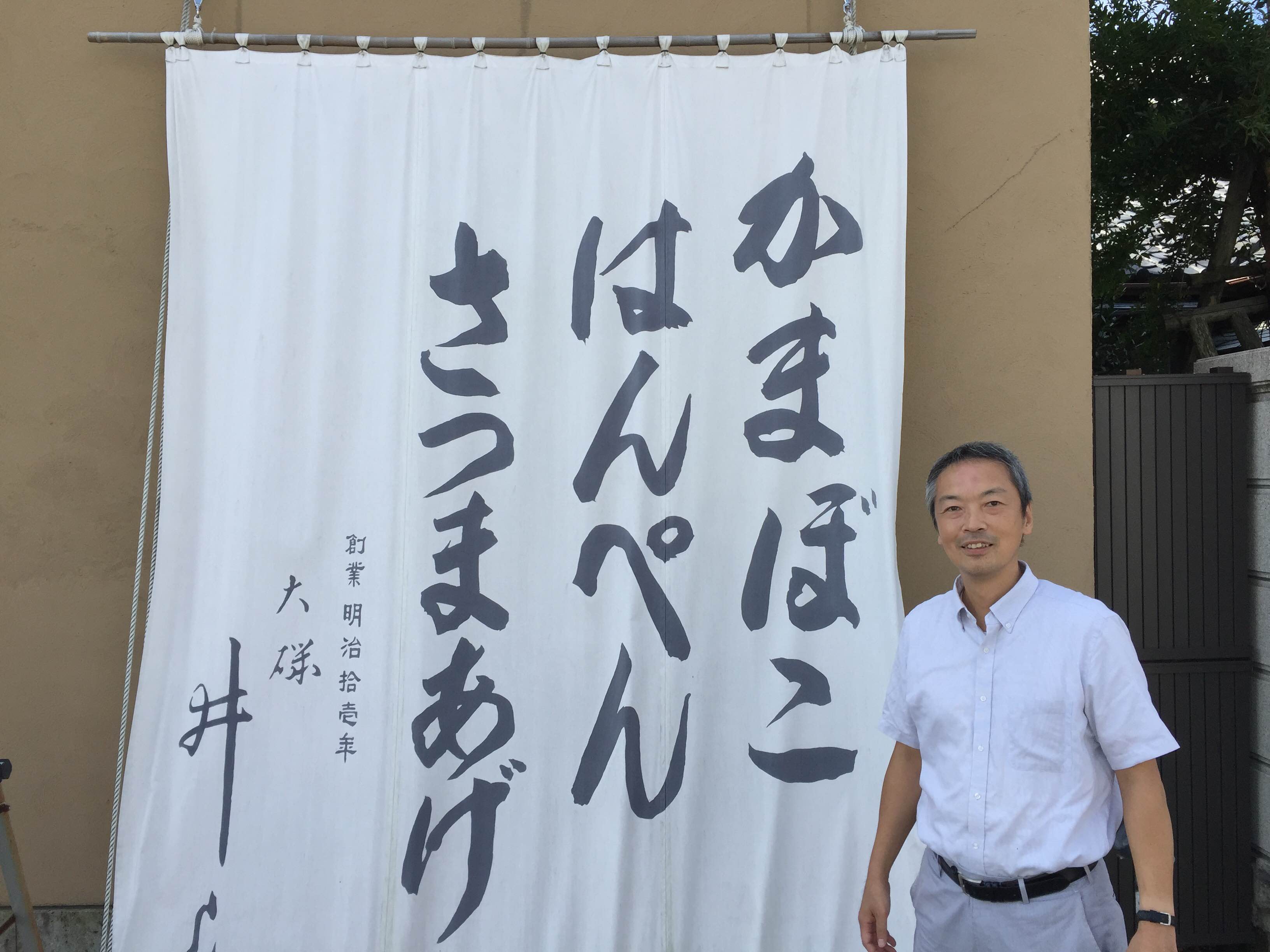
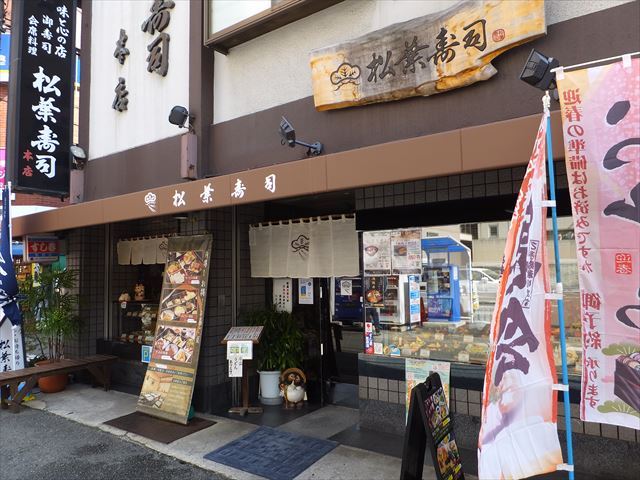


![[Storage period increased from 3 days to half a year! ] Restaurants are expanding their business using wholesale and mail order!](https://shunkashutou.com/wp-content/uploads/2018/04/66c19942ab4ba346fdb64ccc04cde373.png)
![[Reduce loss from 200 kg of oysters to zero] Improve loss and expand business with rapid freezer](https://shunkashutou.com/wp-content/uploads/2018/06/19785ca583a8d3c4041c7c192d041b0d.jpg)
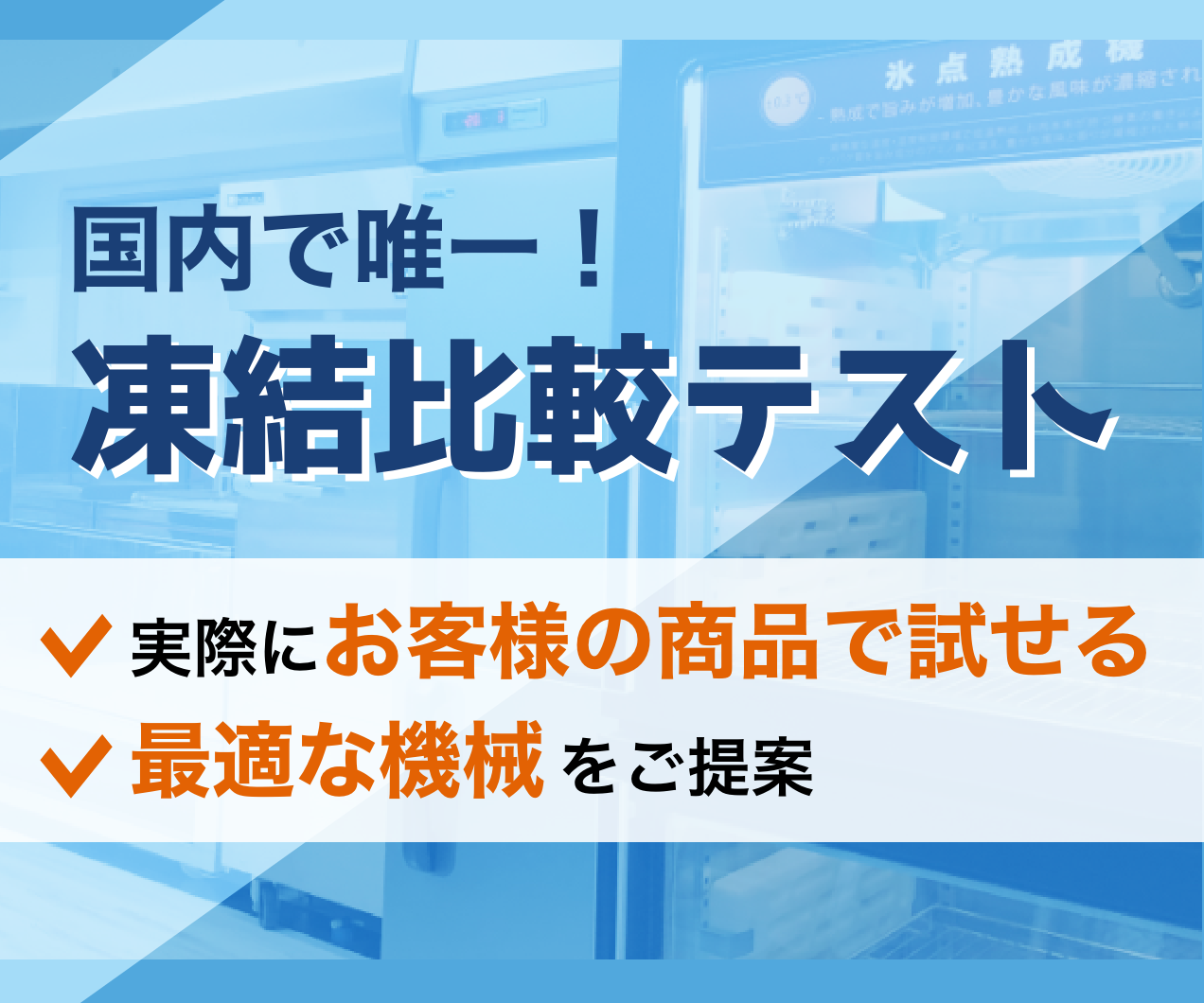
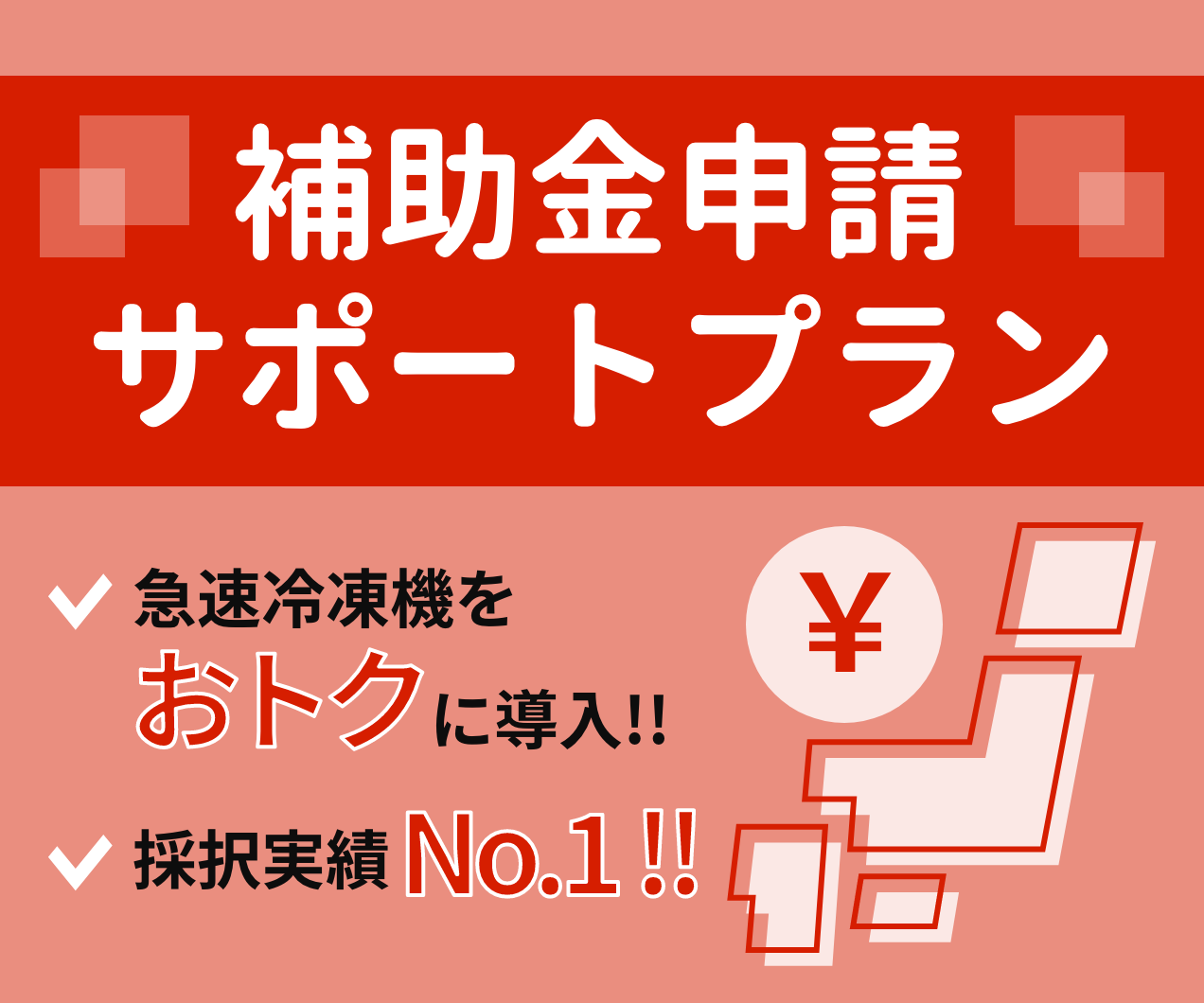
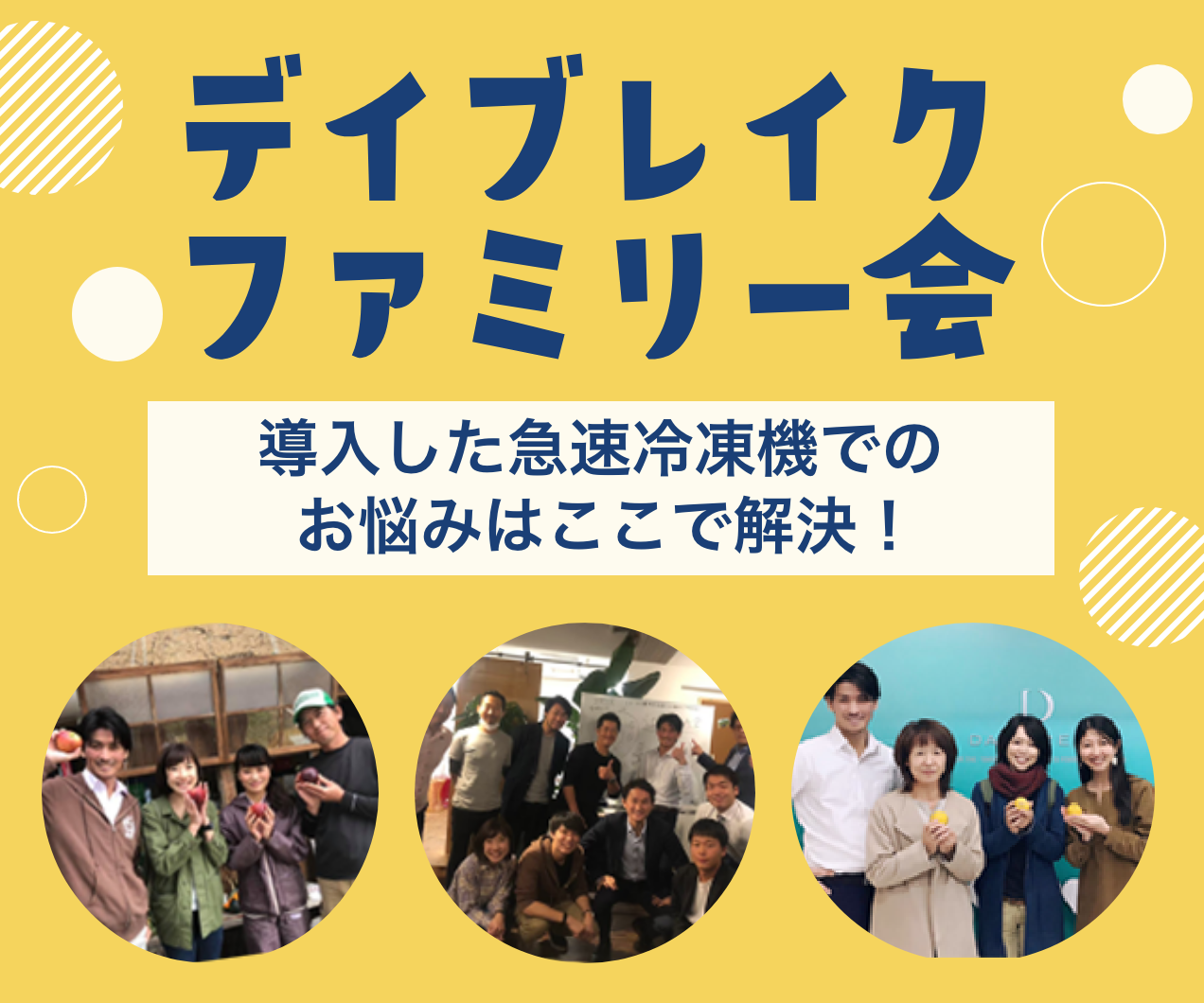
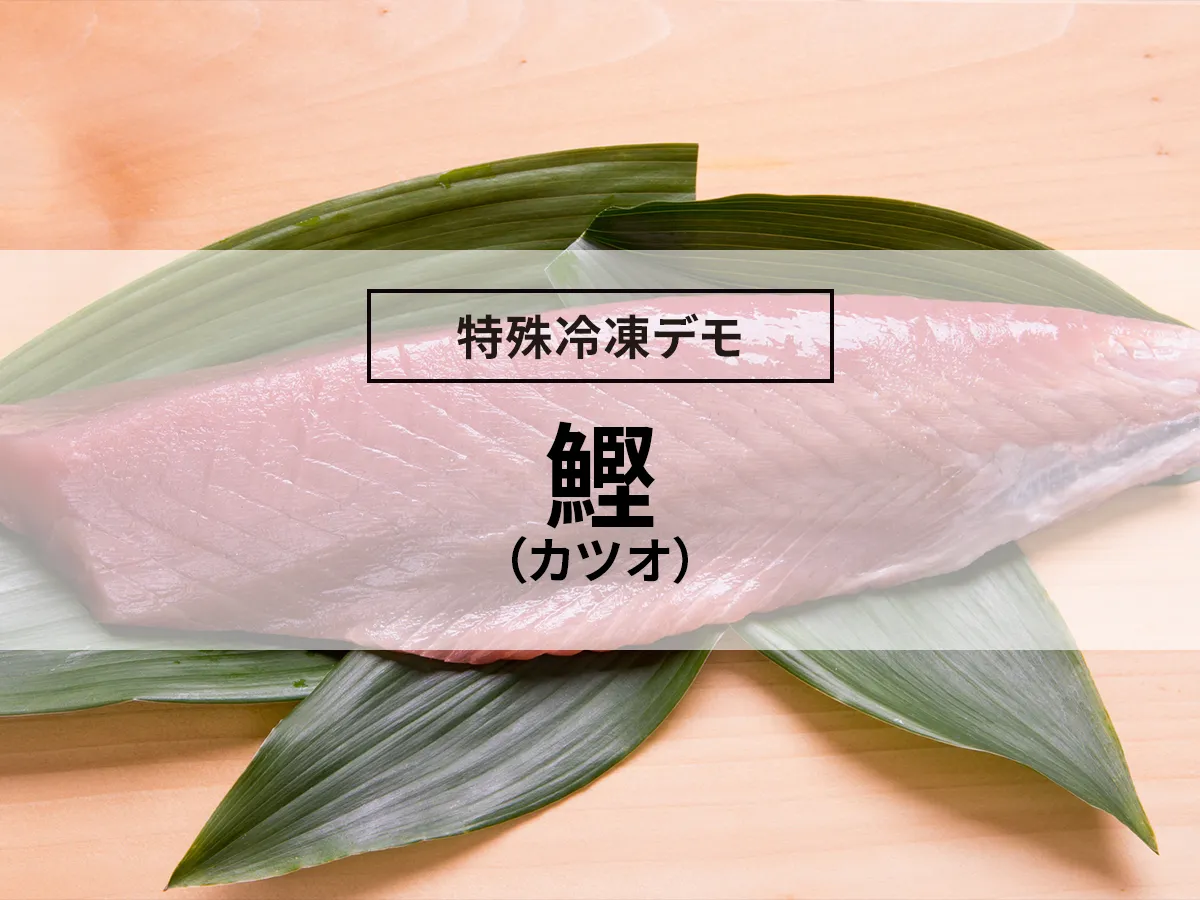
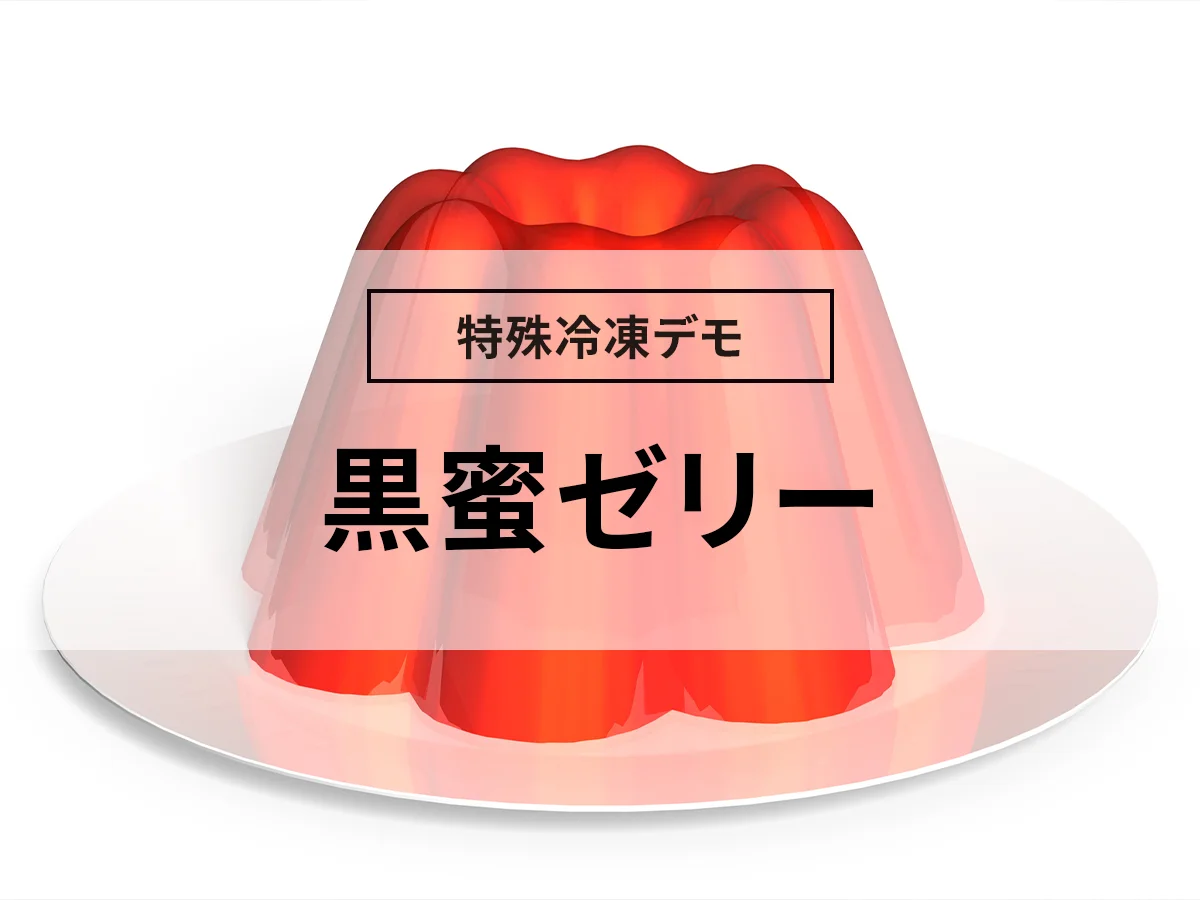
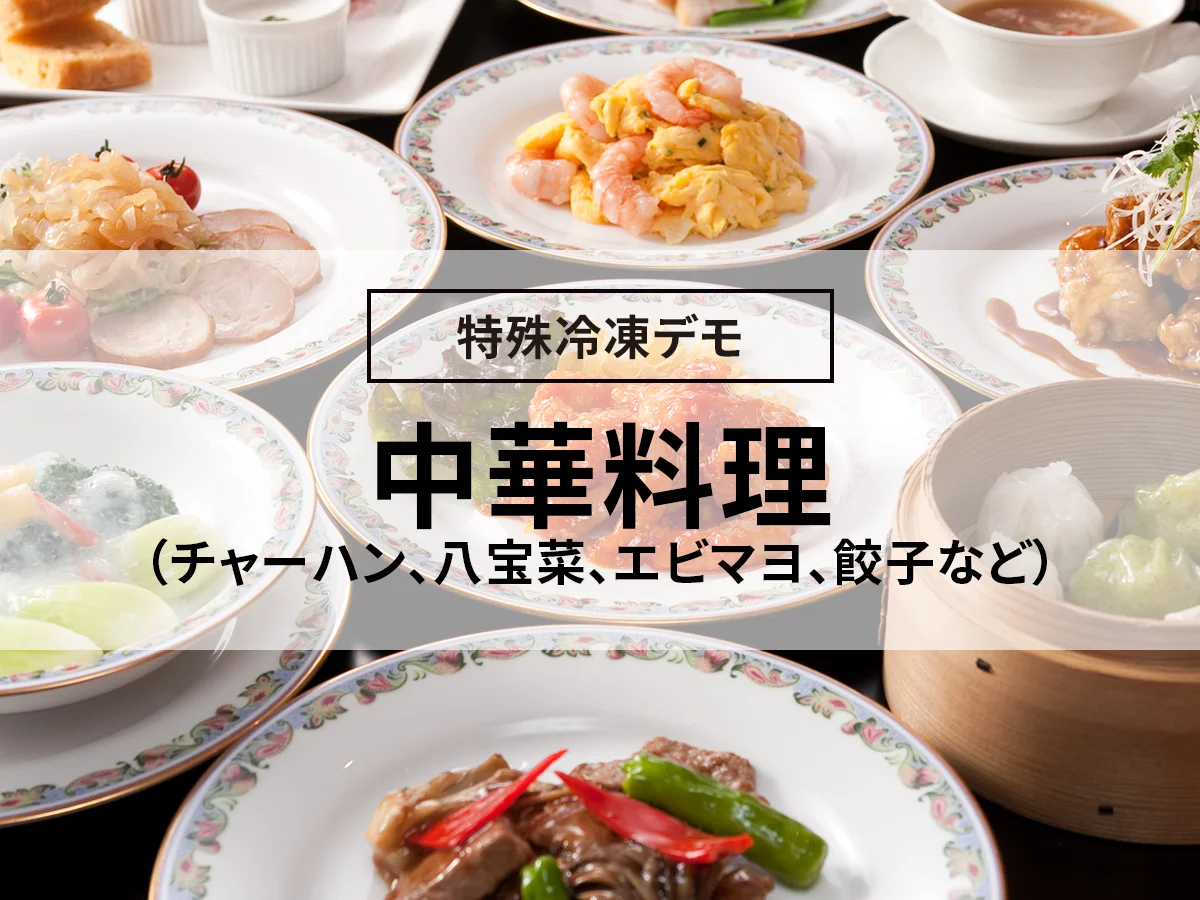
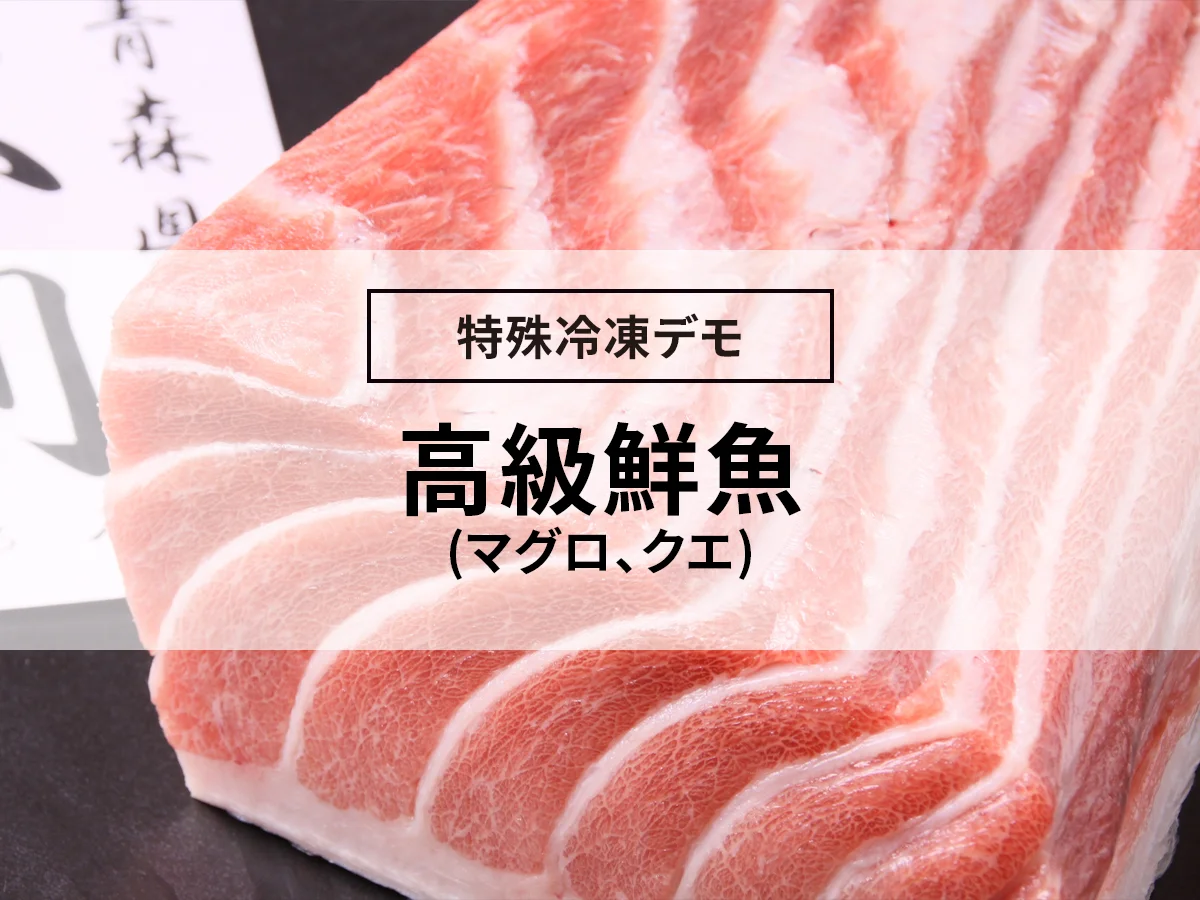
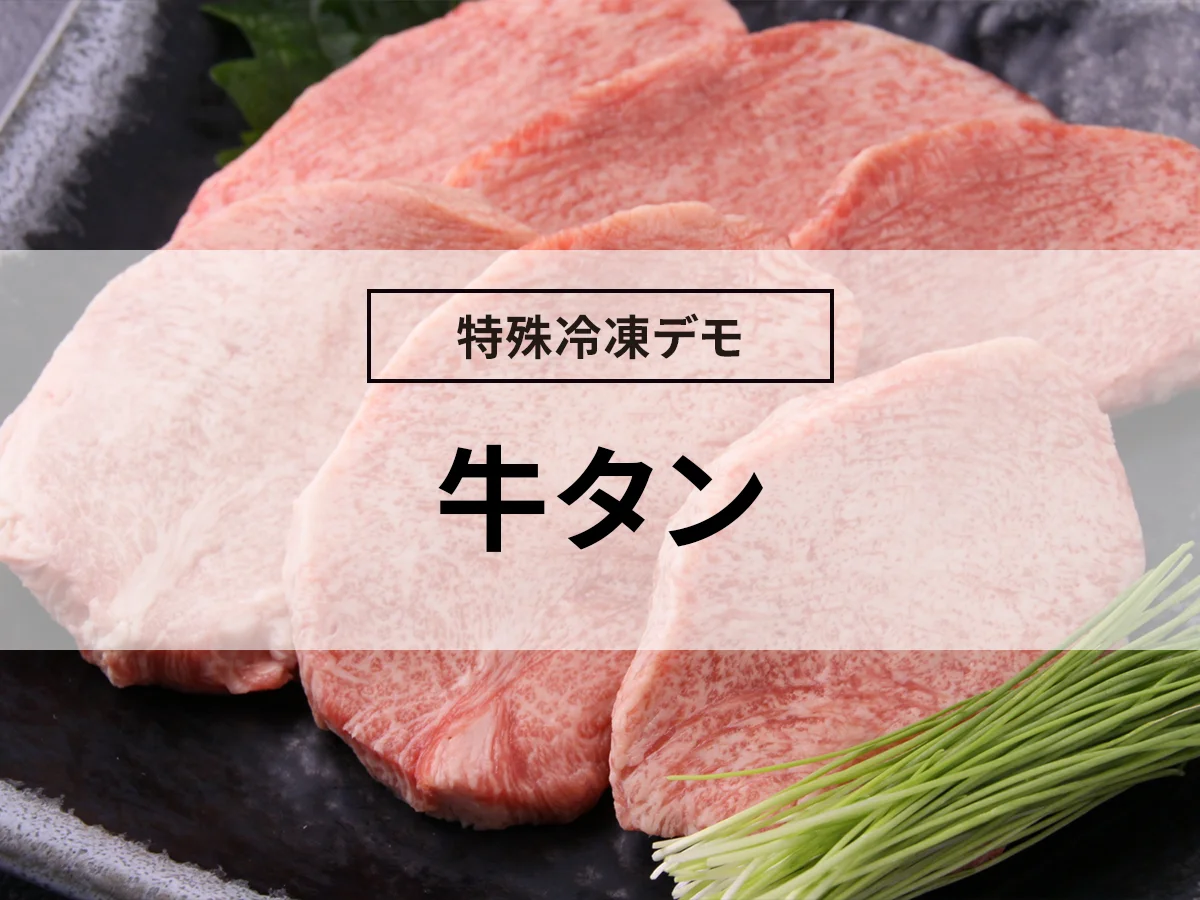
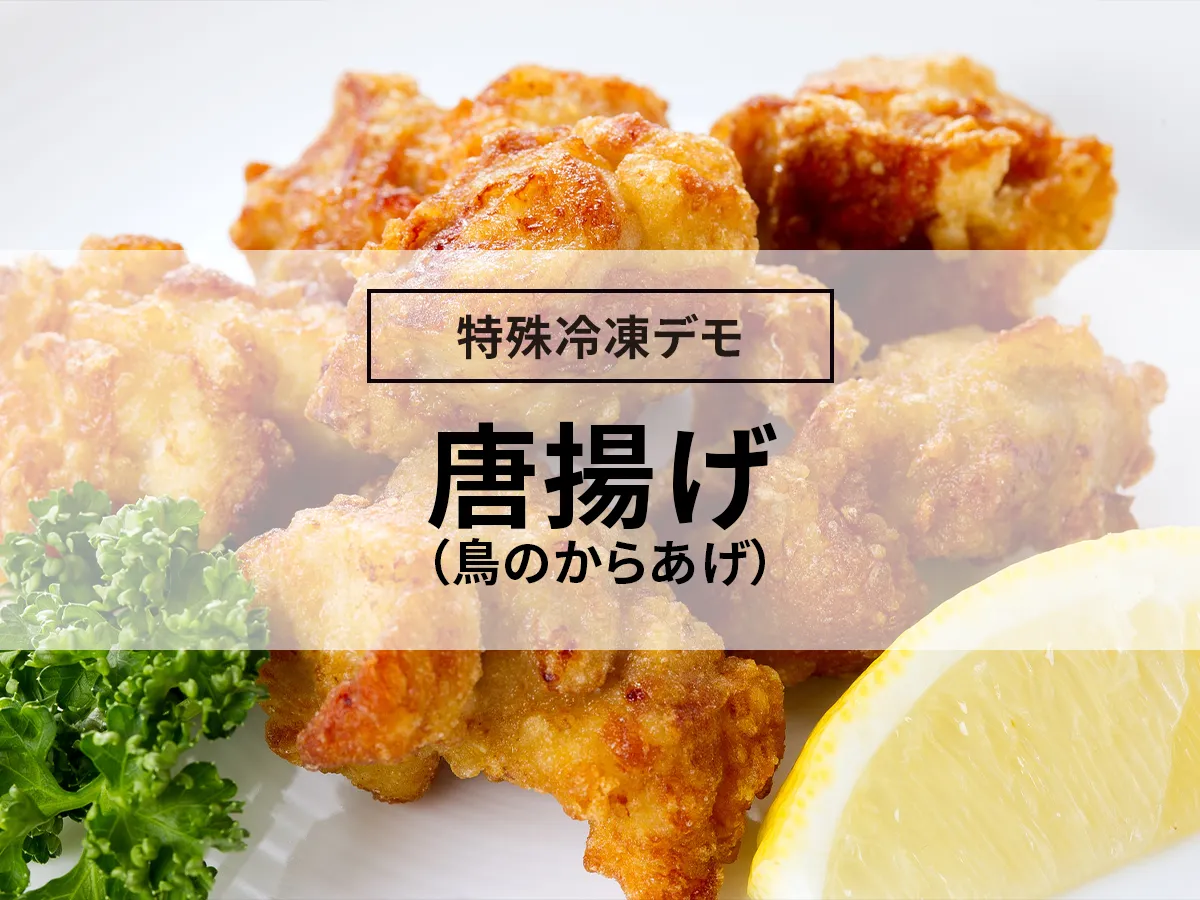
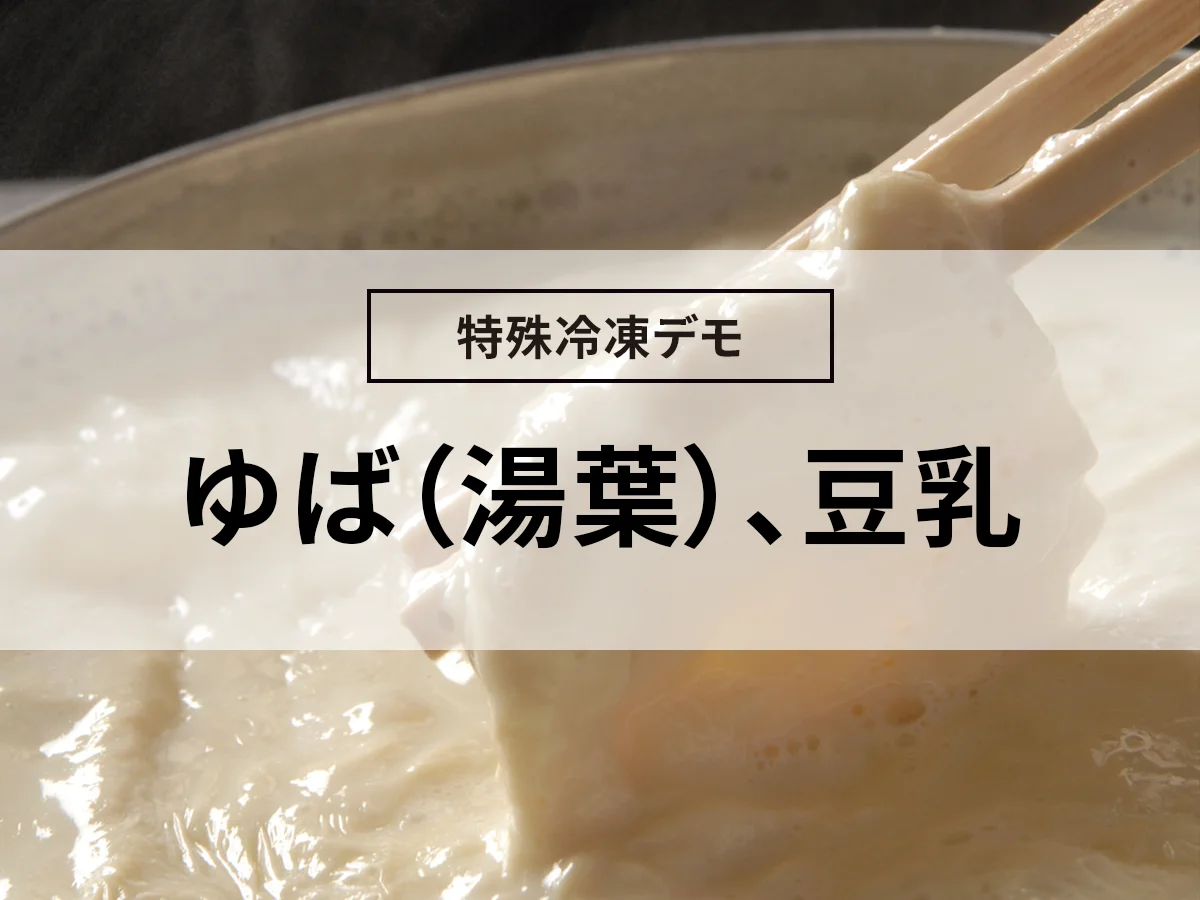
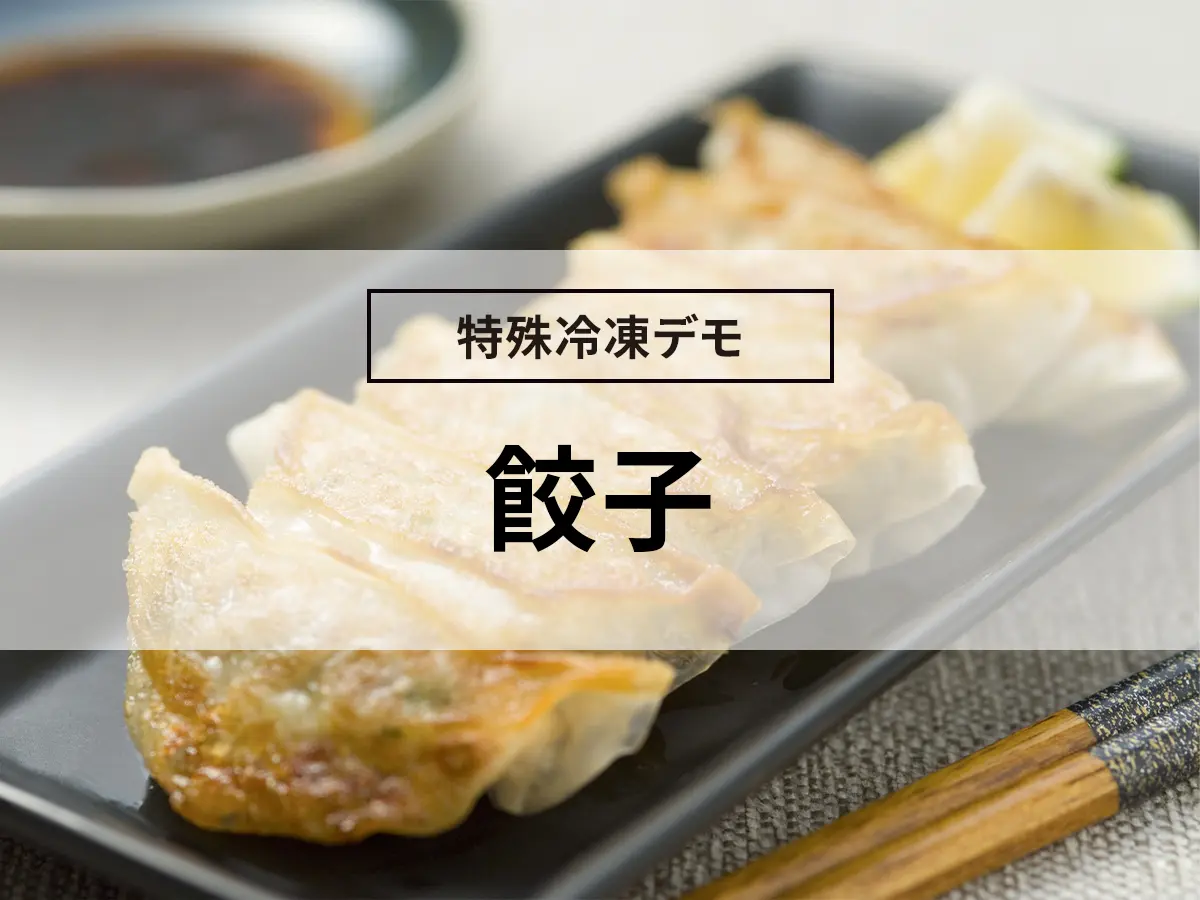
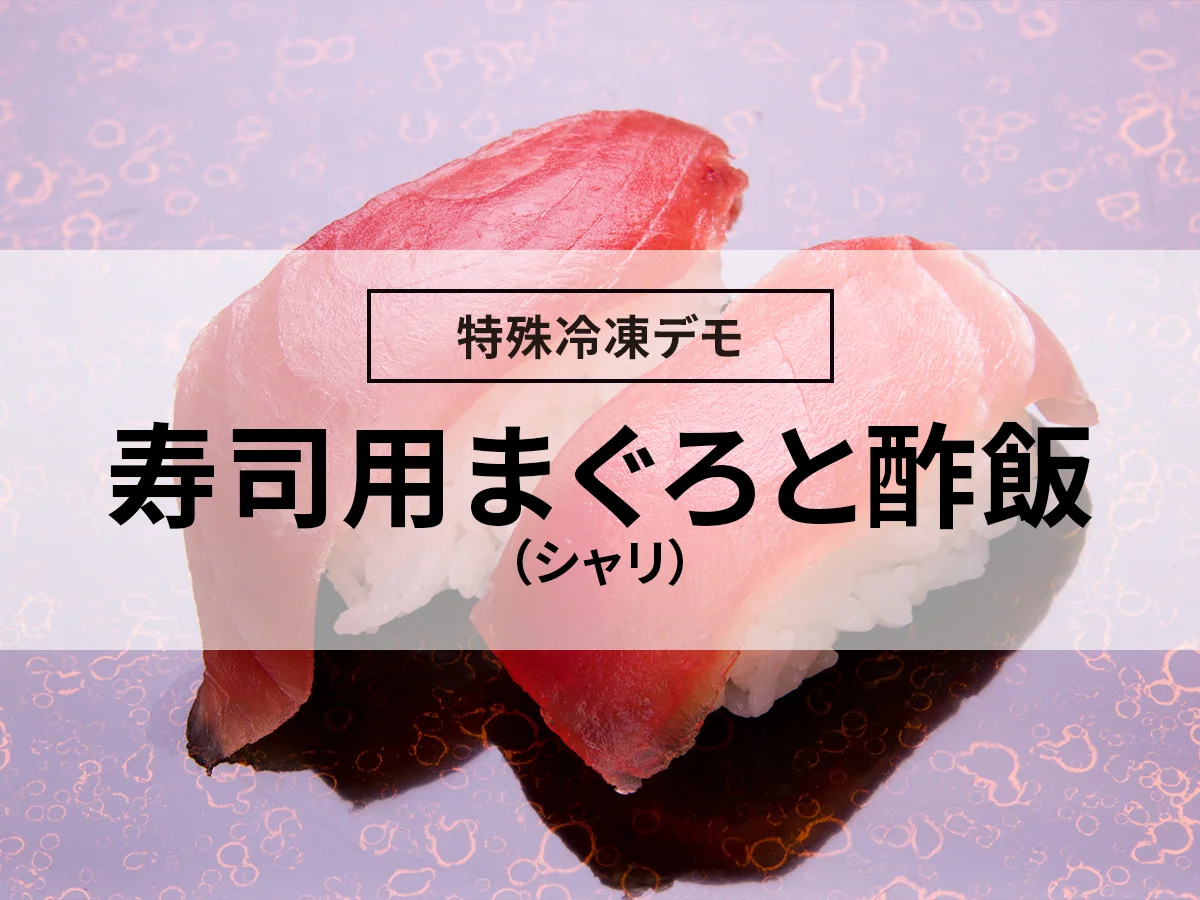
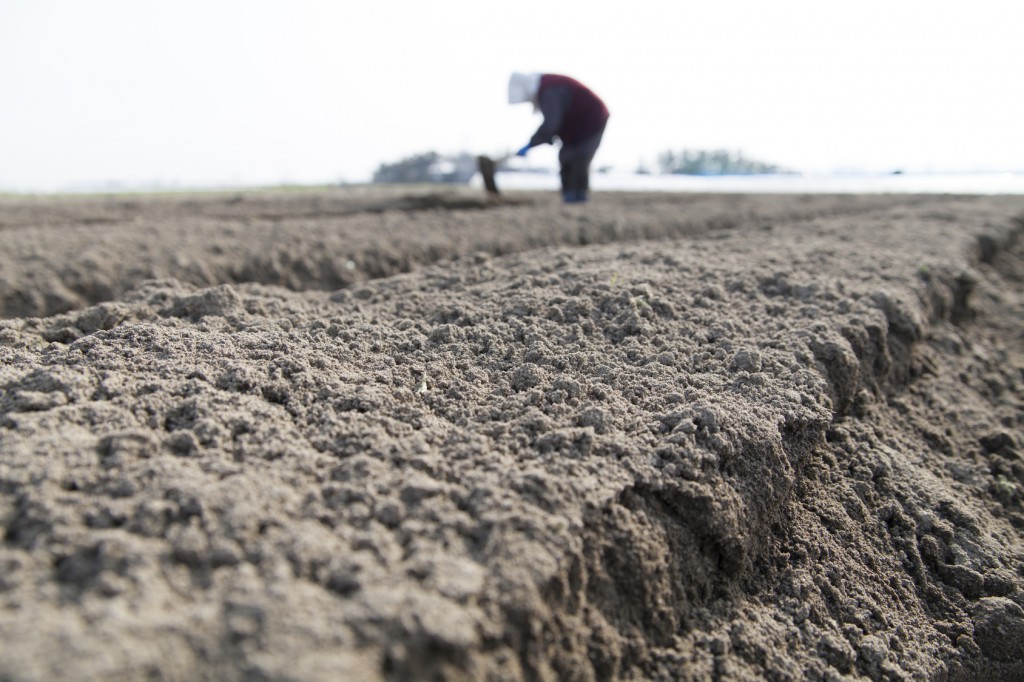
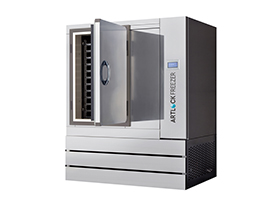
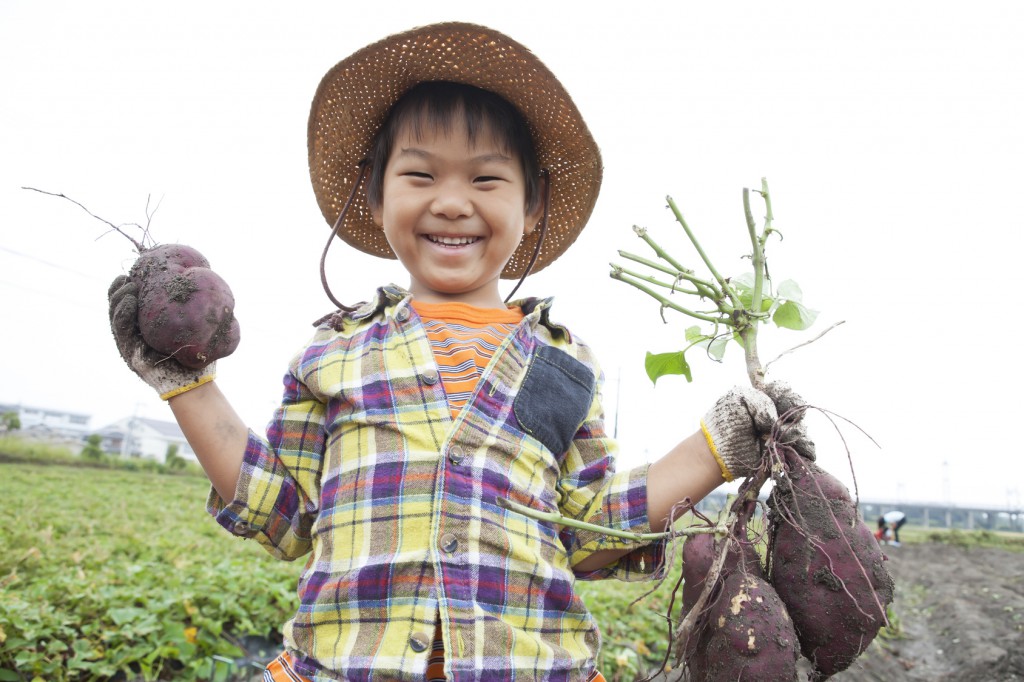


![Introducing how to freeze and thaw whitebait, as well as recipes for its use [Full of nutrition! ]](https://shunkashutou.com/wp-content/uploads/2023/10/04d15012ec36f91a5574f63dfa9d4771.jpg)
![[Solving issues in the retail industry] Liquid freezing machines that should be introduced in supermarkets](https://shunkashutou.com/wp-content/uploads/2015/09/60172f0f261fd750c4016165c3c56cc8.jpg)
![[For maintaining food quality!] Three functions you should know about constant temperature and high humidity storage](https://shunkashutou.com/wp-content/uploads/2015/10/krefrigerator.jpg)
![[Recommended for lunch boxes too! ] Introducing recipes and methods for freezing pasta!](https://shunkashutou.com/wp-content/uploads/2023/10/93f66b71b92cbe1085d41c4ed80d7726.jpg)
![[Just the meat from the field! ] Introducing how to freeze tofu and meat imitation recipes!](https://shunkashutou.com/wp-content/uploads/2023/10/100675242-768x512-1.jpg)

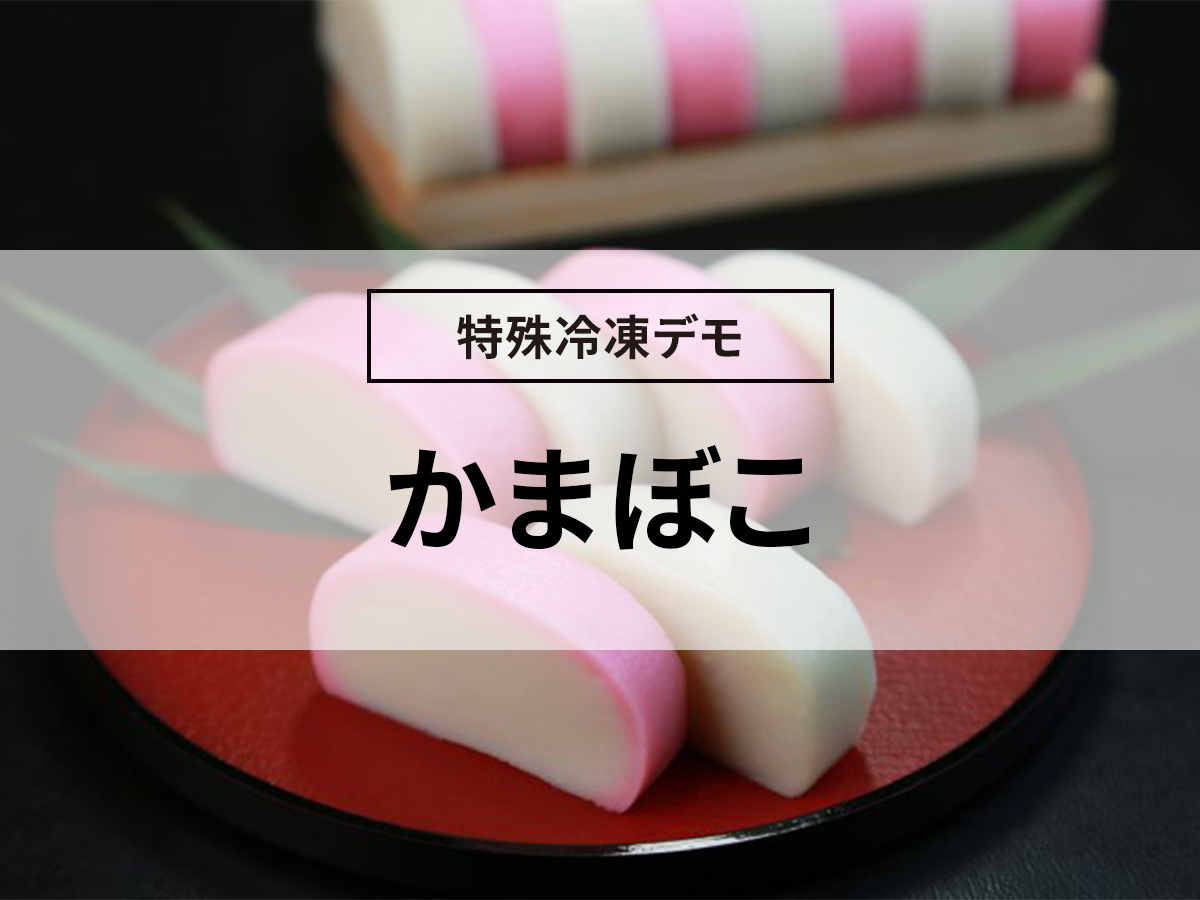

![[Manufacturing subsidies are recommended for rapid freezer! ] Explaining the ABCs of application](https://shunkashutou.com/wp-content/uploads/2020/12/4024568_s.jpg)
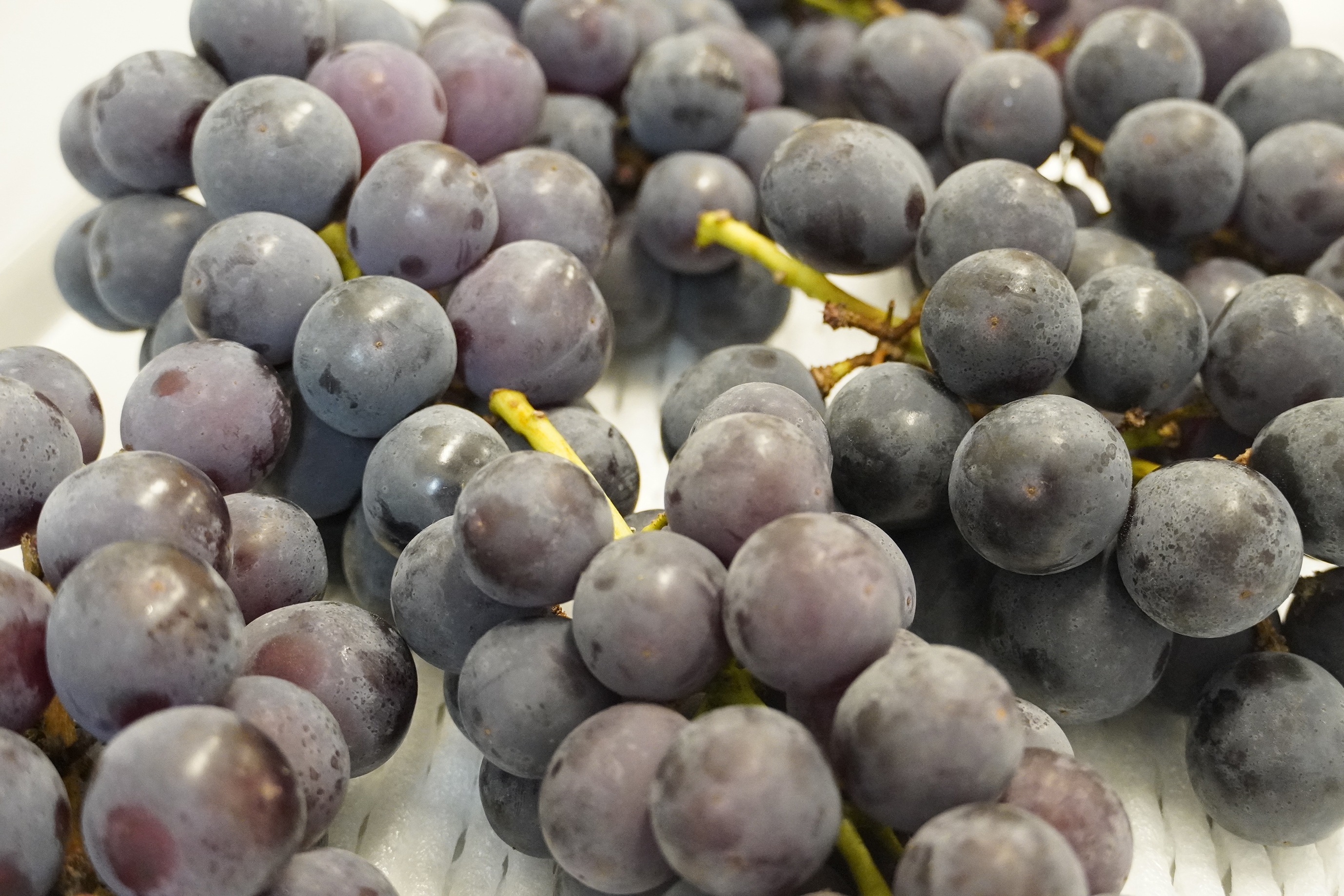
![[Must-see for beginners] What's so great about rapid freezers? Easy-to-understand explanation of the mechanism and benefits!](https://shunkashutou.com/wp-content/uploads/2020/12/9abf7961bd75c2a2af6fb61767b4fdb1-1.webp)
![[Explanation of functions and issues] What is partial freezing, which slightly freezes food?](https://shunkashutou.com/wp-content/uploads/2017/04/ccae917b4f7af5ace617f93280a58247.jpg)

![[Commercial use] Thoroughly investigate the cause of frost forming in the freezer! How to prevent frost formation?](https://shunkashutou.com/wp-content/uploads/2016/06/09c17e4deeb1ac0cdc5a513eaf89ab1a.jpg)
![[Instant cooling at -196℃] What's up with cooling equipment that uses liquid nitrogen?](https://shunkashutou.com/wp-content/uploads/2015/07/4b219d54bd662f10cbae6ea211f612dd.jpg)
![[Agriculture] Advantages and success stories of introducing rapid freezer](https://shunkashutou.com/wp-content/uploads/2015/05/jirei_nogyo_img_01.jpg)
![[Rapid freezers in 2021] Market Trends and Customer Success Stories](https://shunkashutou.com/wp-content/uploads/2020/12/7F9A9CB9-A494-4E6A-946E-079279C596E6.jpeg)
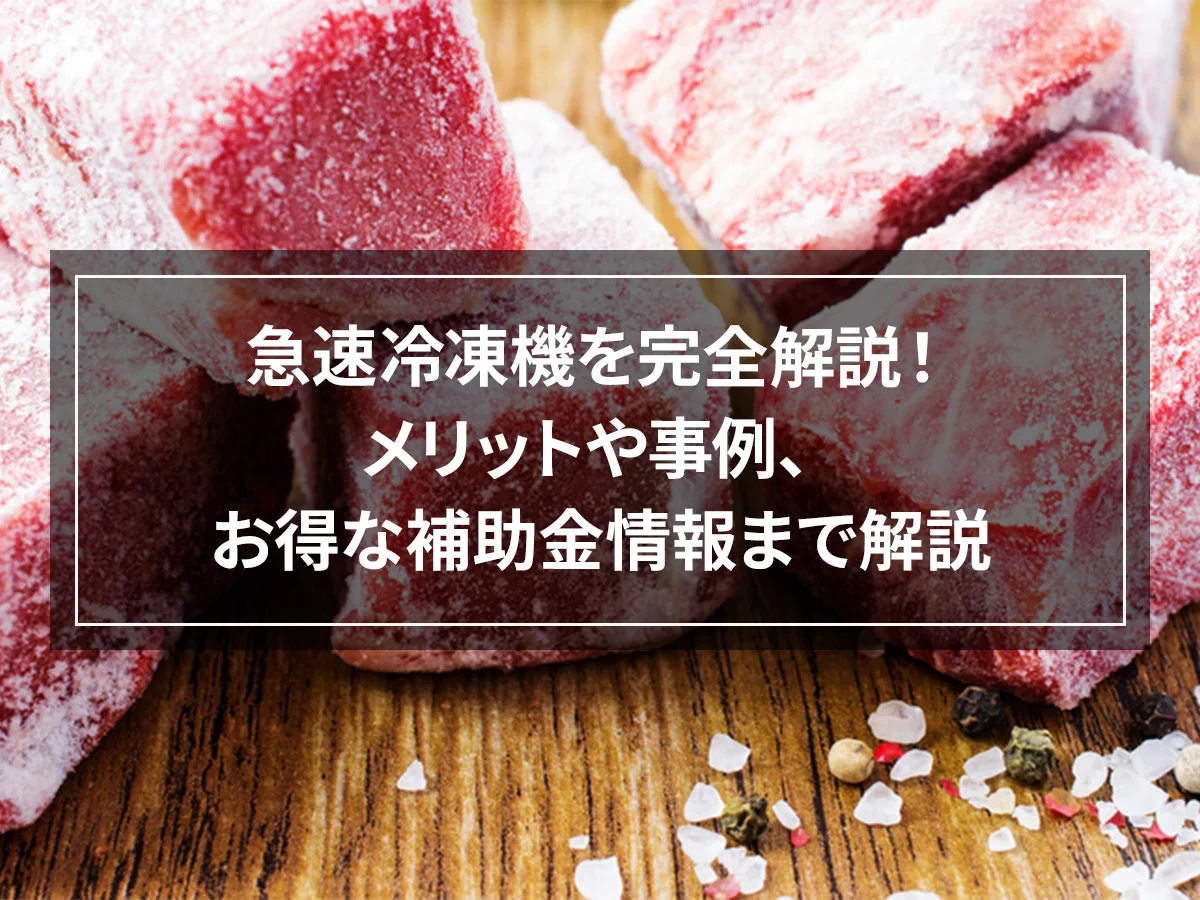
![[Can it be frozen? ] How to freeze milk, storage period, and 5 recipes!](https://shunkashutou.com/wp-content/uploads/2023/09/d0390cbc7a5e9a76c11d5b9eff3b4a5b.jpg)
![How to freeze zucchini and 5 recipes! [Explanation with photos! ]](https://shunkashutou.com/wp-content/uploads/2023/10/zucchini6-768x512-1.jpg)
![[Can it be frozen? ] How to freeze fresh cream, storage period, thawing method and 5 recipes!](https://shunkashutou.com/wp-content/uploads/2023/09/1887f5bd8f2d7f9ef1d88754f2c5bcc4.jpg)
![[Explanation with photos] How to freeze nagaimo, storage period, and 5 recipes!](https://shunkashutou.com/wp-content/uploads/2023/09/c46c238f2048d76de403dfd81ddad1f3.jpg)
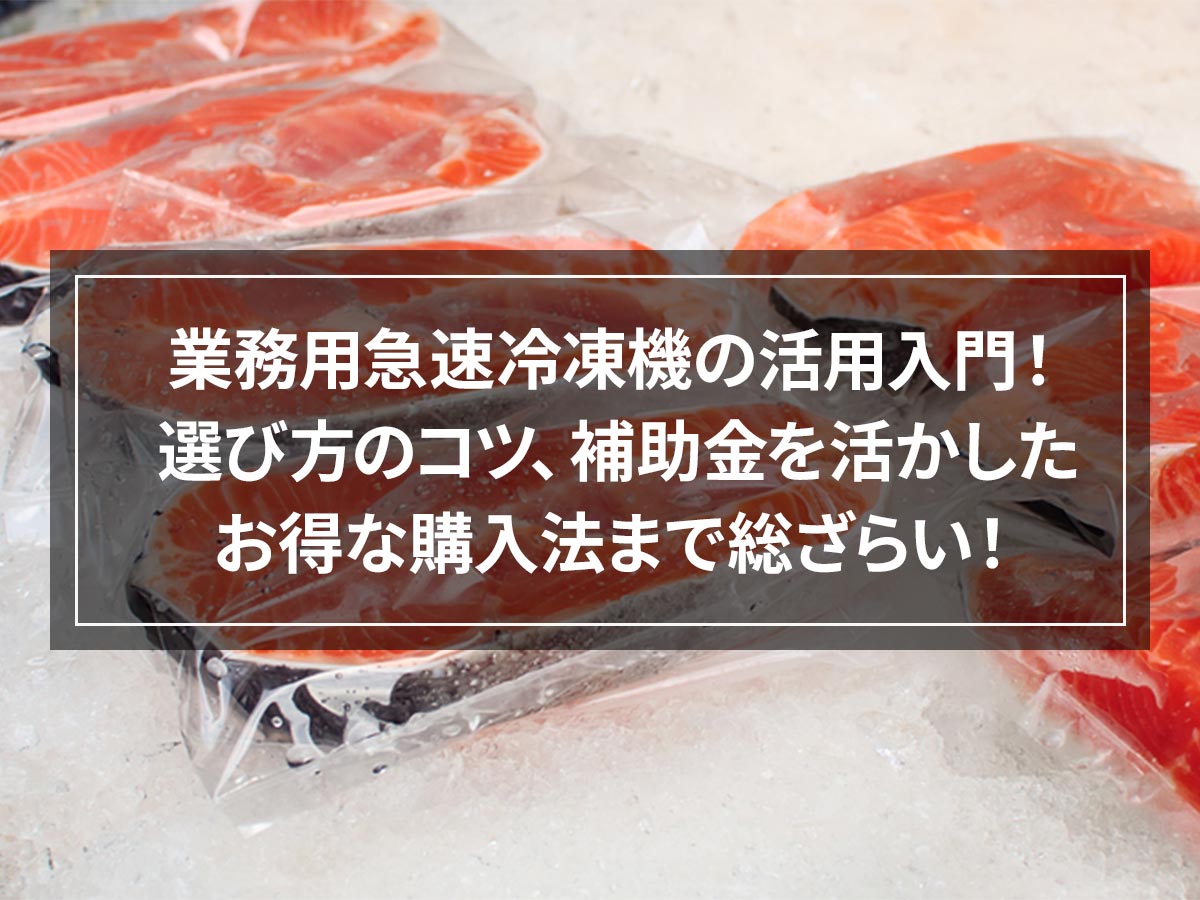
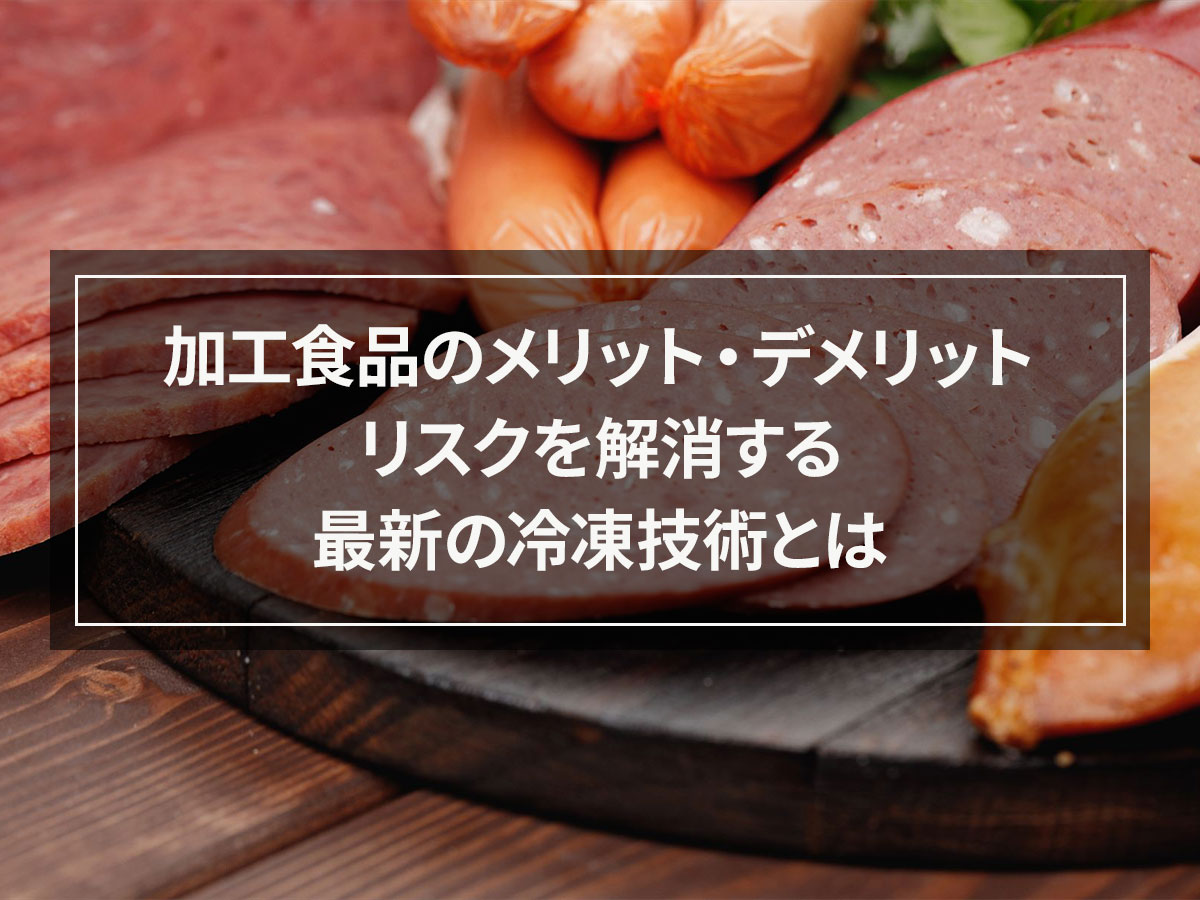
![[For the lunch box manufacturing industry] Business issues can be solved by using rapid freezing!](https://shunkashutou.com/wp-content/uploads/2024/04/f93f171f5d29bdb15c4b8d06e244b002.jpg)

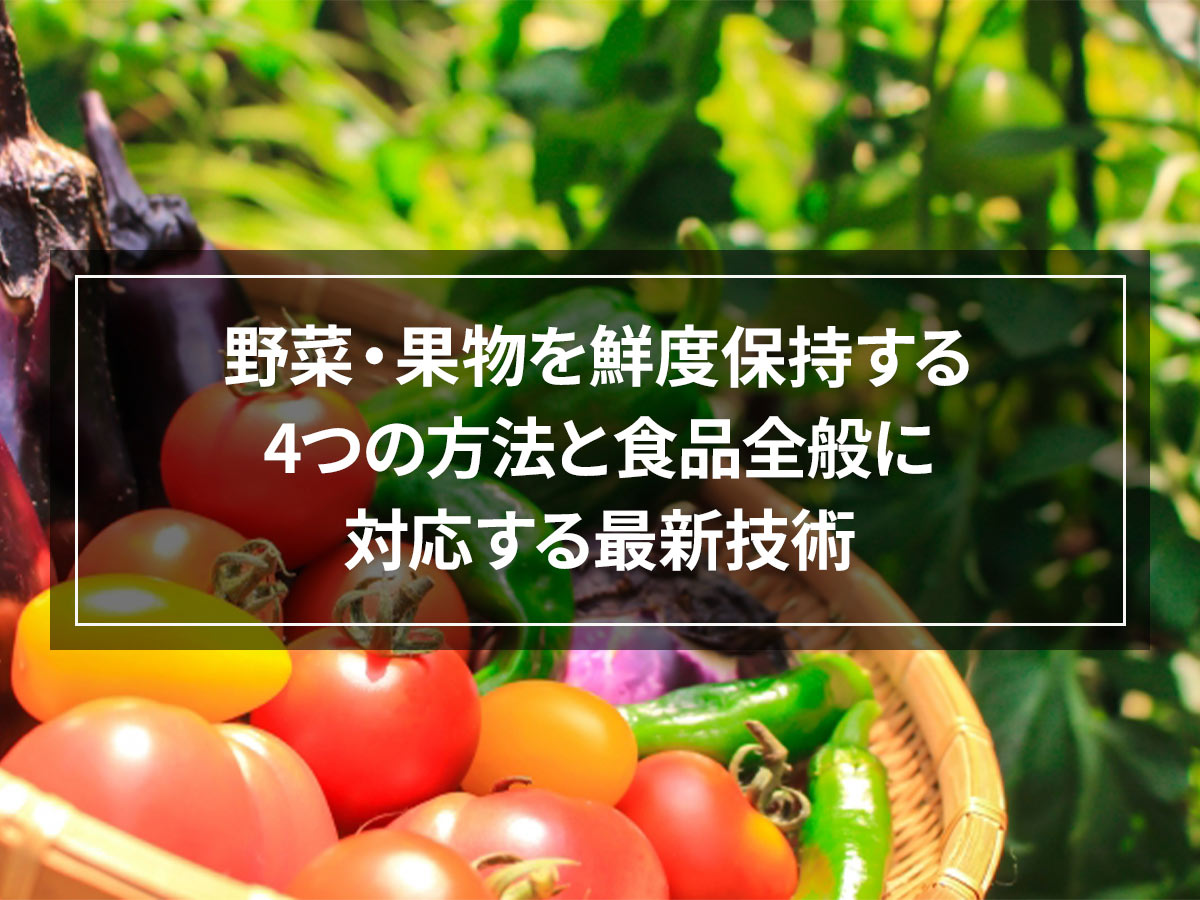
![How to freeze bitter gourd and 5 recipes! [Explanation with photos! ]](https://shunkashutou.com/wp-content/uploads/2023/09/8fe0cb793c93d4fd4c26f352d17e5b87.jpg)
![[Achieving instant freezing at home] The evolving freezing function of home refrigerators](https://shunkashutou.com/wp-content/uploads/2015/10/93e403bcf18bda6b2d63c7c74fdef064.jpg)

